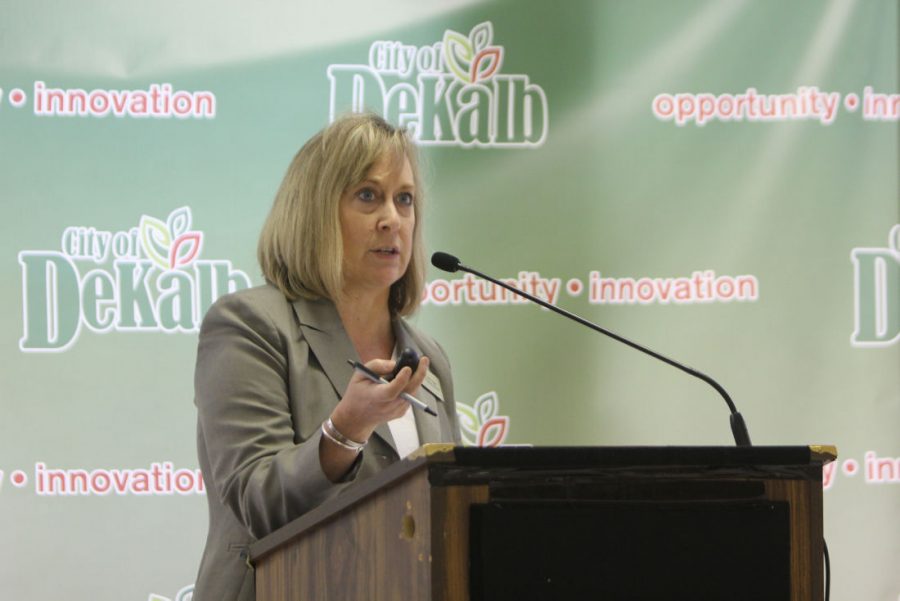City may increase property taxes
Finance Director Cathy Haley presents changes made to the fiscal 2016 budget Monday at a City Council meeting. City Council approved the budget, which included a more than $500,000 surplus.
November 30, 2015
Property taxes may increase by almost $90 if City Council decides to approve a suggested annual property tax levy.
The city uses the annual property tax levy to help finance the costs of providing certain pension benefits for all full-time city employees, according to the Nov. 23 City Council agenda. The levy must be filed with DeKalb County by Dec. 29.
An option recommended by city staff and discussed by the City Council at the Nov. 23 meeting will increase property taxes by .1766 percent, which to the average homeowner will be an increase of $88 on a $150,000 home.
First Ward Alderman David Jacobson said during the ordinance’s first reading the pension’s funds must come from the general fund instead of the taxpayers. Jacobson voted against the option, as did 6th Ward Alderman David Baker.
Fourth Ward Alderman Bob Snow said cuts must be made to reduce the tax increases, but without the proper cuts the property taxes must increase.
Jacobson said the $88 tax increase would be enough to make his constituents unable to afford their taxes, and as a result leave DeKalb.
Moody’s Investors Service, which provides credit ratings and research, issued DeKalb a debt rating of Aa2 and considers it a city with a “negative outlook.”
DeKalb Finance Director Cathy Haley, said the debt rating is positive; however, Moody considered the “negative outlook” a result of potential future pension liabilities.
The tax hike is also required to pay for the Federal Insurance Contributions Act, a federal law that requires DeKalb to withhold three taxes from employee wages, with 6.2 percent going Social Security and 1.45 percent going to Medicare and the Illinois Municipal Retirement Fund rates.
The Federal Insurance Contribution Act, the fund and city employee pensions cost the city $5 million in 2015.














